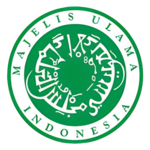| Majelis Ulama Indonesia مجلس العلماء الإندونيسي | |
 | |
| Formation | 26 July 1975 |
|---|---|
| Type | Socio-religious organization |
| Headquarters | Menteng, Central Jakarta, Jakarta |
Region served | Indonesia |
Leader | Anwar Iskandar |
| Website | mui |
Indonesian Ulema Council (Indonesian: Majelis Ulama Indonesia, Arabic: مجلس العلماء الإندونيسي, abbreviated MUI) is Indonesia's top Islamic scholars' body. MUI was founded in Jakarta on 26 July 1975 during the New Order era.[1] The council comprises many Indonesian Muslim groups including Nahdlatul Ulama (NU), Muhammadiyah, and smaller groups such as LDII, Syarikat Islam, Perti, Al Washliyah, Mathla'ul Anwar, GUPPI, PTDI, DMI, and Al Ittihadiyyah.
The Ahlul Bait Indonesia (Shi'ite) and Jemaat Ahmadiyyah Indonesia (Ahmadiyya) were not accepted as members. In 2005, MUI released the fatwa to prohibit Ahmadiyya as deviant sect of Islam and lobbied the President to ban the expelled religious sect.[2]
Roles
[edit]The government, at the creation of the MUI stated three broad goals for the MUI:
- Strengthening religion in the way the Pancasila describes to ensure national resilience.
- Participation of the Ulama in national development.
- The maintenance of harmony between the different religions in Indonesia.[3]
Beside the three goals, nonetheless, there were two specific agendas of MUI's establishment. First, it aimed to help Suharto in communism repudiation. Second, it was an umbrella organization for political Islam canalization.[4]
Since the collapse of Suharto's regime in 1998, MUI has changed its approach in the state-religion relationship by envisioning a more active role to protect Muslim's interests while started a new position as a critical partner of the Indonesian government.[5] The MUI, thus, acts as an interface between the Indonesian government and the Islamic communities. The changes in civil society after the fall of Suharto have both widened the role of the MUI and made it more complex. The MUI gives fatwas to the Islamic community; through this they dictate the general direction of Islamic life in Indonesia.[6] Fatwa (or plural form Fatawa) represents Muslim's ethical response, legal interpretation, and contextual feedback on a particular social issue(s).[5]
The MUI now has twelve commissions and ten divisions that work together in behalf of Muslim's interest through various responsibilities such as fatwa, education and leadership training, women and family, law and regulation, research and development, inter-religious engagement, international relations, economic betterment and many more. Each commissions is led by professional and Islamic scholars.[7]
The MUI (particularly since the fall of Suharto) have given opinion and issued fatwas on a large variety of issues, from the role of the Indonesian Army in government to the public acceptability of the dancing of pop star Inul Daratista to the (sin of) deliberately burning forests to clear the land for growing crops.[6][8]
An important function of MUI is to provide halal fatwa for products (including but not limited to foods, cosmetics, pharmaceutical and clothing).
List of chairmen
[edit]
- Abdul Malik Karim Abdullah (1975–1981)
- Syukri Ghozali (1981–1984)
- Hasan Basri (1984–1990)
- Ali Yafie (1990–2000)
- Sahal Mahfudh (2000–2014)
- Din Syamsuddin (2014–2015)
- Ma'ruf Amin (2015–2020)
- Miftachul Achyar (2020–2023)
- Anwar Iskandar (2023–present)
Conflicts
[edit]MUI is a government funded organisation that acts independently but there have been examples of the MUI being asked to legitimise government policy. A particular example of this that caused friction within the MUI was request that the MUI support the government's birth control program. The government needed the support of the MUI and aspects of the program were objected to by many in religious circles.[3]
See also
[edit]References
[edit]- ^ "Sejarah MUI". Majelis Ulama Indonesia. 2019. Archived from the original on 28 November 2021. Retrieved 9 November 2019.
- ^ Nugroho, Agung Yudistira (September 2017). "Case Study on Violence Against Ahmadiyya Adherents in Indonesia in the Reign of President Susilo Bambang Yudhoyono". Jurnal Pendidikan Ilmu Pengetahuan Sosial Indonesia. 2 (2): 38 – via Researchgate.
- ^ a b “Islamic state or state Islam? Fifty years of state-Islam relations in Indonesia”, in: Ingrid Wessel (Hrsg.), Indonesien am Ende des 20. Jahrhunderts. Hamburg: Abera-Verlag, 1996, pp. 19-34.
- ^ Hasyim, Syafiq (2015). "Majelis Ulama Indonesia and Pluralism in Indonesia". Philosophy and Social Criticism. 41 (4–5): 489–90. doi:10.1177/0191453714566547.
- ^ a b Nasir, Muhammad (January 2011). "The Majelis Ulama's fatwā on abortion in Contemporary Indonesia". The Muslim World. 101 (1): 35. doi:10.1111/j.1478-1913.2010.01341.x.
- ^ a b Gillespie, P 2007, "Current Issues in Indonesian Islam: Analysing the 2005 Council of Indonesian Ulama Fatwa N0. 7" Journal of Islamic Studies Vol 18, No. 2 pp. 202-240.
- ^ "Kepengurusan MUI". Majelis Ulama Indonesia. 2019. Archived from the original on 26 June 2019. Retrieved 9 November 2019.
- ^ Forest-burning is a sin, says Indonesian Islamic council, BBC News, 14 Sept 2016
- ^ Ghaliya, Ghina (21 May 2019). "KPU names Jokowi winner of election". The Jakarta Post. Retrieved 21 May 2019.
External links
[edit]- MUI official website (in Indonesian and English)
- MUI official website (in Indonesian and English)